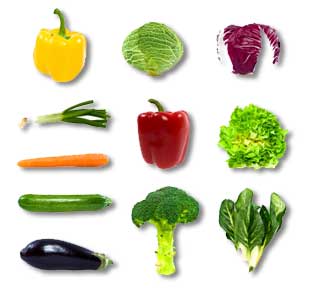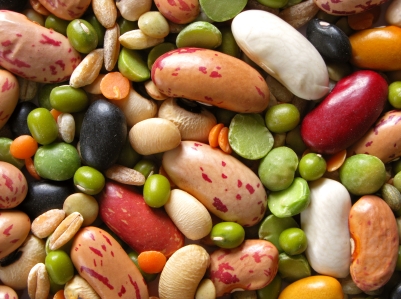If your stomach feels tight, it could be as a result of stomach cramping, pain or bloating. It is hard to pinpoint what exactly tightness in the stomach feels like as it differs from person to person. While stomach tightness can be caused by various conditions, most of them are harmless. Nevertheless, you shouldn’t ignore the tightness as it could be a symptom of an underlying condition.
Why Does My Stomach Feel Tight?
1. Overeating
Overeating can cause stomach tightness. It can get pretty bad if you overindulge in foods that contain too much oil and spices. You should avoid eating at odd hours such as in the middle of the night. You should also avoid excessive consumption of alcohol.
2. Build-up of Internal Gas
The gas produced in your intestines is directly related to the foods you eat and how you eat it. More often than not, your stomach feels tight when you have too much gas in it.
3. Constipation
Due to the accumulation of feces in the colon and the excessive straining during a bowel movement, constipation can cause tightness in the stomach.
4. Abdominal Injury
A strained or pulled muscle near abdomen can also cause tightness in stomach. This could be the result of external trauma or injury to the stomach muscles due to rigorous physical activity.
5. Irritable Bowel Syndrome
The Irritable Bowel Syndrome (IBS) is a chronic condition which is caused by complications in the digestive system. It is usually accompanied by abdominal pain, cramping, gas, diarrhea, bloating and constipation.
6. Pregnancy
As the fetus grows in the womb, the mother might experience some tightness in the lower abdomen. This is usually caused by the stretching of the abdominal wall or the compression of organs in the abdomen.
7. Menstrual Cycle
Tightness in the stomach is normal during menstruation. If this is the cause of the tightness, it may be accompanied by mood swings and other pre-menstrual symptoms.
8. Ascites
Ascites is the accumulation of fluid in the peritoneal cavity. It does not show symptoms during the nascent stages, but can morph into a painful condition in severe cases. With time, it causes the abdomen to distend and there may be a feeling of tightness or compression.
9. Growing Mass
If your stomach feels tight, it could be as a result an abscess, a tumor or a cyst. While an abscess can cause pain on its own, cysts and tumors can turn painful after damaging body organs or compressing your nerves.
10. Bladder Infection
The tightness could be as a result of a urinary tract infection. Normally, you would feel a burning sensation, but it is sometimes accompanied by tightness in the stomach.
What Can I Do When I Have Tight Stomach?
1. Change Eating Pattern
 Changing your eating pattern will go a long way to relieve this problem. Chew your food properly and avoid rushing through meals. Instead of eating 3 heavy meals throughout the day, eat 5 small meals. Drink plenty of water but avoid taking it with your meals. Wait at least half an hour after your meal then take water.
Changing your eating pattern will go a long way to relieve this problem. Chew your food properly and avoid rushing through meals. Instead of eating 3 heavy meals throughout the day, eat 5 small meals. Drink plenty of water but avoid taking it with your meals. Wait at least half an hour after your meal then take water.
After meals, you can add a pinch of asafoetida to a glass of buttermilk and drink it. This helps with digestion, chest tightness and stomach pain
2. Recommended Foods
If your stomach feels tight due to gas and constipation, you should take prune juice and aloe vera juice. You should also include constipation relief foods in your diet, including potatoes, broccoli, yoghurt, flaxseed, asparagus, honey, almonds etc.
3. Foods to Avoid
Avoid consuming legumes in large quantities, especially soy beans, lentils and peanuts. They slow down some digestive enzymes hence compound the problem. You should also avoid dairy products.
4. Natural Herbs
 You can soothe stomach pain and chest tightness brought by gastritis by taking herbal teas after meals. You can choose between ginger, chamomile and mint herbal teas. You can also soak fenugreek seeds in a glass of water and let it sit overnight. Drink it when you wake up in the morning.
You can soothe stomach pain and chest tightness brought by gastritis by taking herbal teas after meals. You can choose between ginger, chamomile and mint herbal teas. You can also soak fenugreek seeds in a glass of water and let it sit overnight. Drink it when you wake up in the morning.
5. Exercises
 Exercising increases bowel movements. This helps food get digested with less gas and also expels any gas from the system quickly. You also get a well toned body in the process.
Exercising increases bowel movements. This helps food get digested with less gas and also expels any gas from the system quickly. You also get a well toned body in the process.
6. OTC Medicines
 There are plenty of options when it comes to medication for indigestion, such as Simethicone (Gas-X, Phazyme) and Bismuth subsalicylate (Pepto-Bismol).
There are plenty of options when it comes to medication for indigestion, such as Simethicone (Gas-X, Phazyme) and Bismuth subsalicylate (Pepto-Bismol).
When to See a Doctor
1. If the pain, tightness or cramping comes on sharply and does not subdue or is chronic.
2. If the problem occurs frequently for a long period of time, it may be a sign of a digestive condition such as Irritable Bowel Syndrome (IBS), ulcers or Crohn’s Disease.
3. If you have additional symptoms such as bloody stool, fever or vomiting.
4. If you’re pregnant and experience abdominal cramping.


